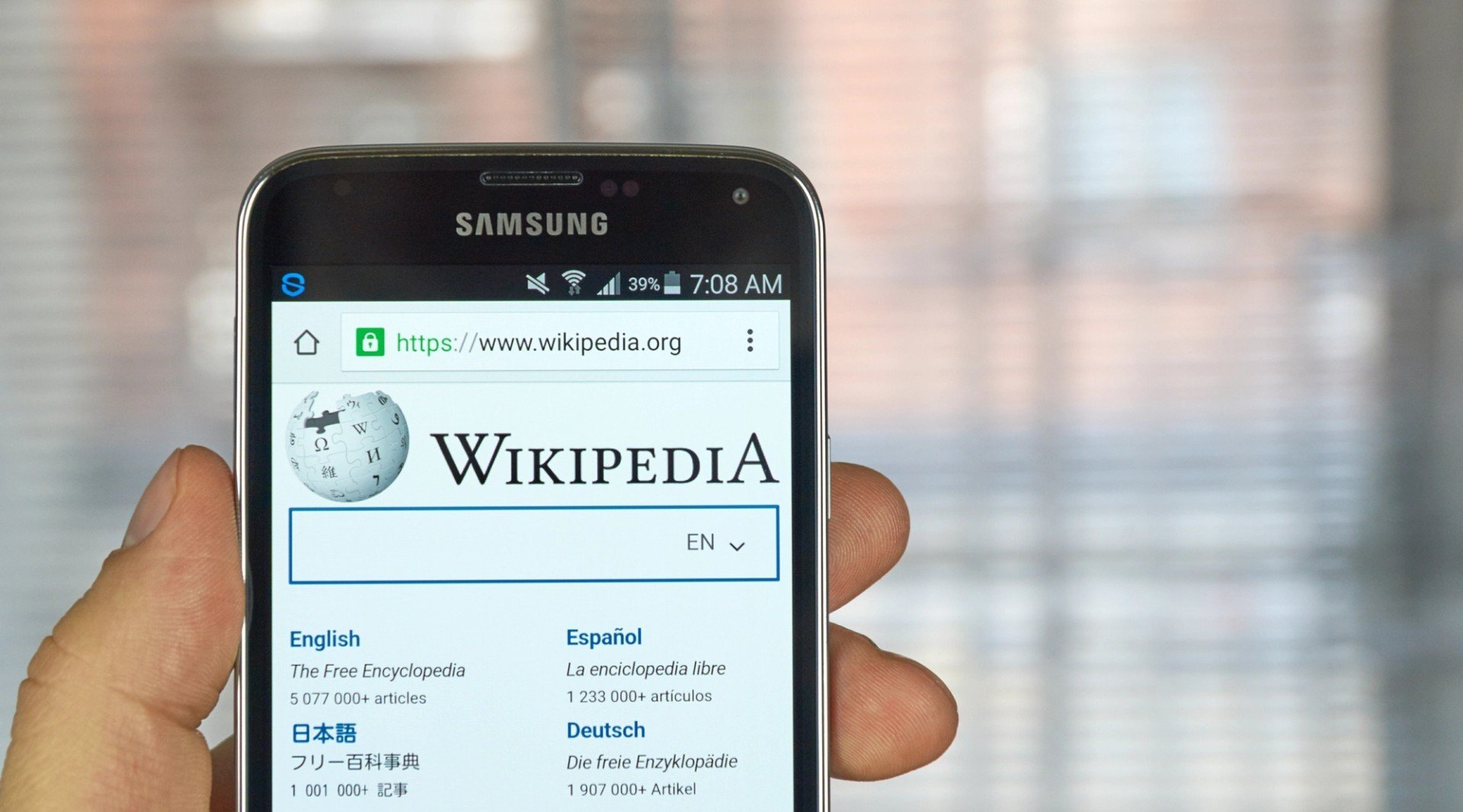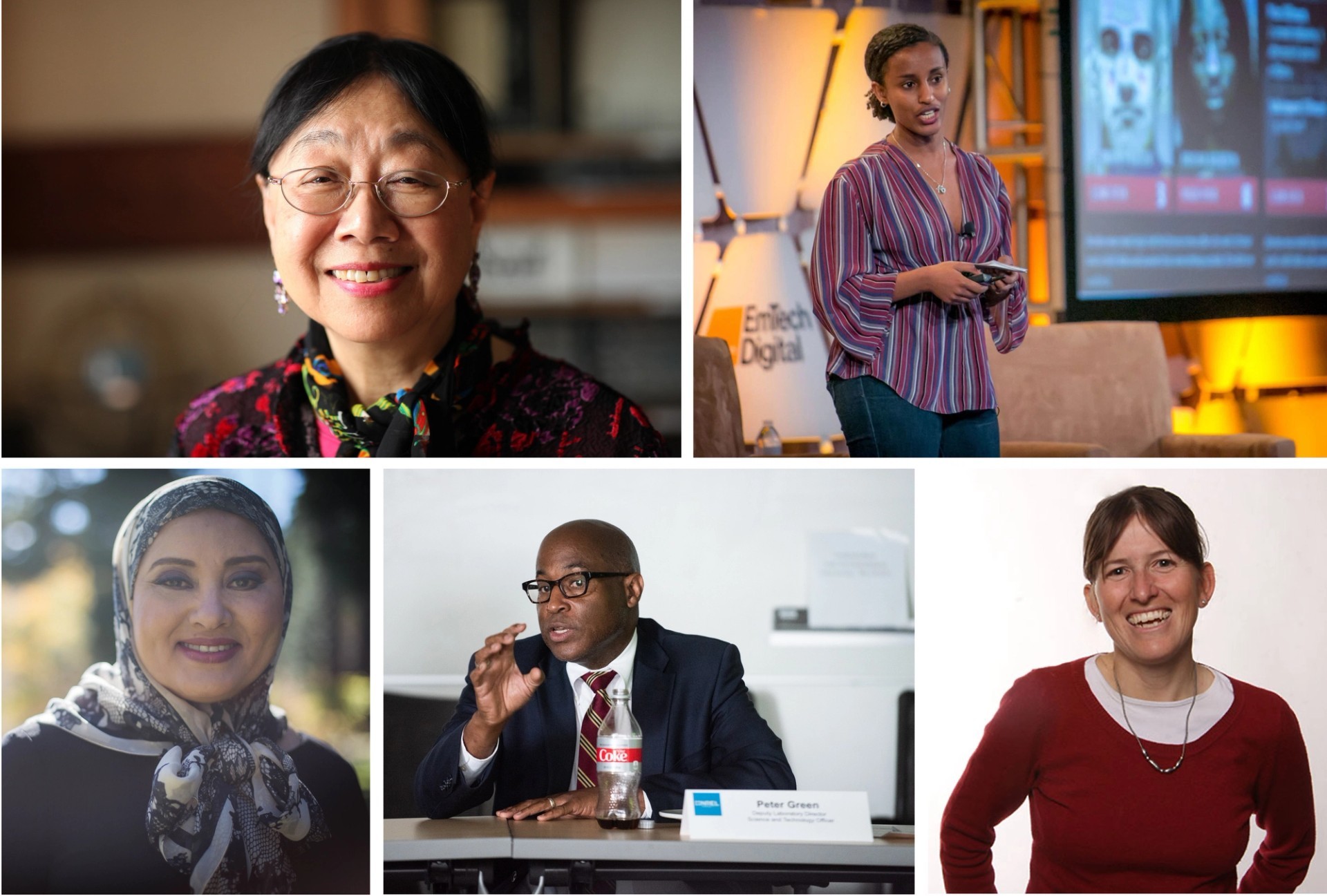Wikipedia Has a Problem That Physicists Can Help Solve
APS’s Wiki Scientist Program trains scientists to bridge the site’s gender and race gap. Physicist Alexander Moreno is going even further.

Wikipedia is a behemoth. As one of the world’s most visited websites, the free, volunteer-written online encyclopedia has 60 million pages, 2 billion monthly users, and nearly 130,000 editors who have contributed in the last month.
It also has a problem.
Women and members of certain racial and ethnic groups are underrepresented in Wikipedia articles, including in science — a challenge that has plagued the platform since its launch two decades ago. For example, as of January 2023, just 19% of English Wikipedia's biographies were about women.
To help change this, the American Physical Society partnered with the nonprofit Wiki Edu in 2019 to launch the Wiki Scientist Program, which has now trained 84 people — including a Nobel Prize laureate — in editing boot camps to write and edit Wikipedia articles.
One of those trainees is Alexander Moreno, an assistant professor of physics at the Universidad Antonio Nariño in Colombia. Moreno’s registration costs for the boot camp he attended were covered by a scholarship from the APS Forum on International Physics. Now, Moreno, a longtime APS member, is helping the Society develop its own project page on Wikipedia’s sister site, Wiki Data.
Moreno and APS have many goals for the effort, known as the APS WikiProject, which will launch this spring. For example, the APS website has great data on physics degrees, but few people know where to find it, says Moreno. “The idea is to make that data more visible,” he explains, by adding it to the APS WikiProject and thus to Wiki Data.
The project’s team is also building a query feature that will allow Wiki Data users to sort through the Society’s Physical Review journal collection to analyze, for example, how many articles have been authored by women or international contributors. And during future boot camps, participants will be invited to write biographies for individuals from underrepresented groups, such as “Latin American women physicists,” Moreno says.
The hope is that the page will become self-sustaining and community-based, with multiple physicists pitching in, just as multiple editors often contribute to one Wikipedia article.
For Moreno, this project began a decade ago, long before the APS Wiki Scientist Program. He was listening to a scientific talk when the presenter did something unusual — he referenced data from a Wiki site. “I was surprised,” says Moreno, because citing Wikipedia is usually discouraged within the scientific community.
Moreno’s surprise gave way to intrigue. Many scientists value public outreach, he says, but often stick to traditional methods, like giving presentations in schools.
“That’s one of our responsibilities — to try to communicate better with everybody, not only with other scientists,” says Moreno. He says scientists should be working to engage the public “in all possible ways.”
“When you Google something, one of the first returns you get is from Wikipedia,” says Moreno. And if members of the public are already using Wikipedia to learn about science, then scientists should help write those articles, he reasoned. In 2021, he got his chance, enrolling in the APS Wiki Scientist Program through the APS website’s public engagement page.
In his view, efforts like the APS WikiProject are examples of open science, allowing “the general public to have access to all the things we do as scientists, as physicists.”

Moreno’s work is just one example of the APS Wiki Scientist Program’s impact. According to its public dashboard on Wiki Edu, the program’s graduates have contributed to nearly 600 existing Wikipedia articles, mostly related to underrepresented physicists, and added almost 100 new articles. These articles have reached more than 24 million readers in less than four years.
The APS Wiki Scientist Program also runs Wikipedia edit-a-thons. One such event, held at the 2019 APS March Meeting, was attended by British physicist Jess Wade. Wade has contributed more than 1,750 articles to Wikipedia — including a page on APS Fellow and University of Chicago Provost Ka Yee Christina Lee, which has received over 42,000 views.
Moreno says that, often, he feels like efforts toward inclusion in physics lack tangible outcomes. “For instance, in the academic hiring process, we say that inclusion is important,” says Moreno, “but in the end, sometimes we just look at whether you have a lot of articles in high-profile journals, and that’s it.” In contrast, the APS WikiProject could become a quantifiable effort toward measuring real inclusion within the field, he says.
Moreno is hoping that if enough people become involved, the project will achieve critical mass. APS members can help. It’s a WikiProject, he adds, so “anyone can contribute.”
Liz Boatman
Liz Boatman is a science writer based in Minnesota.